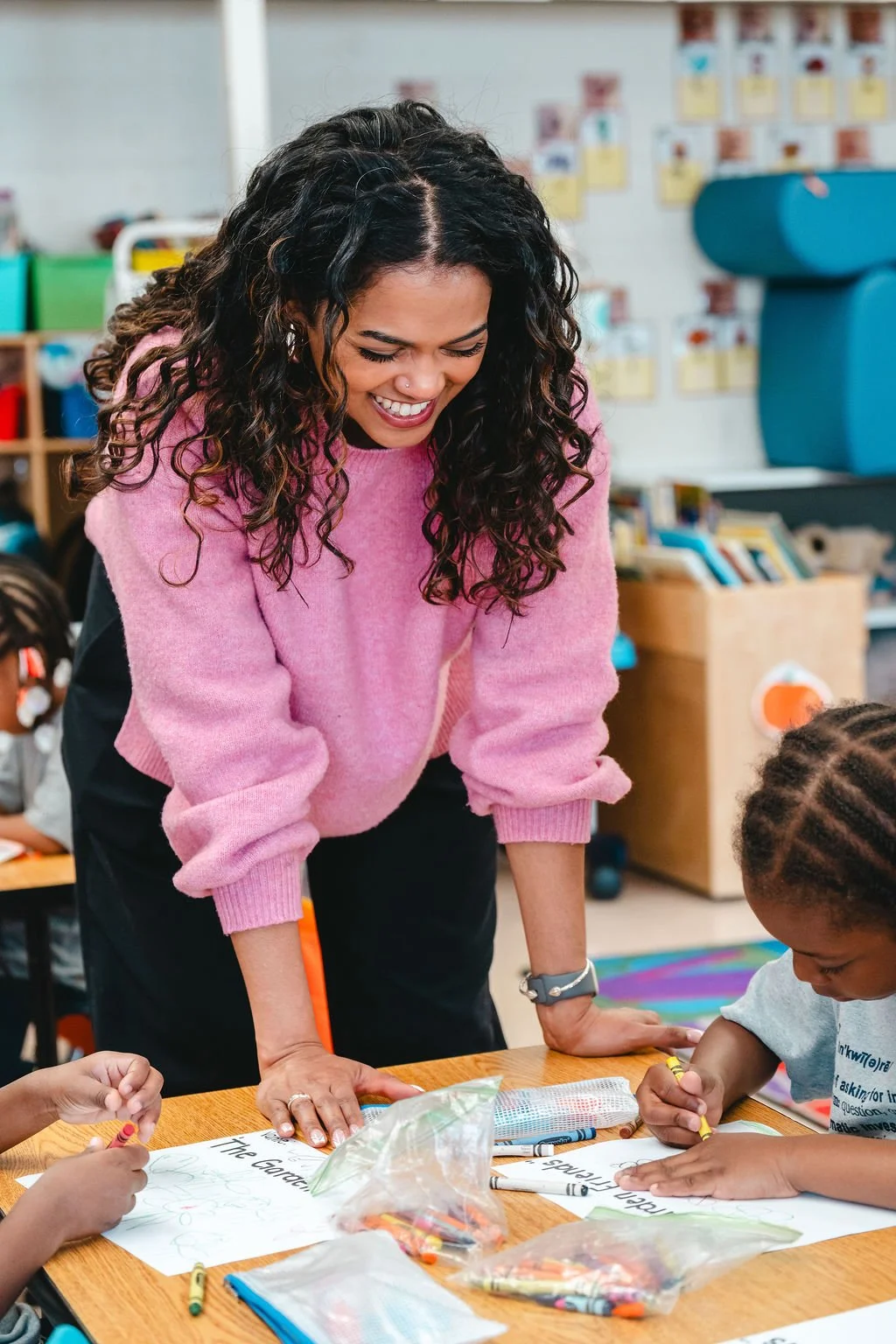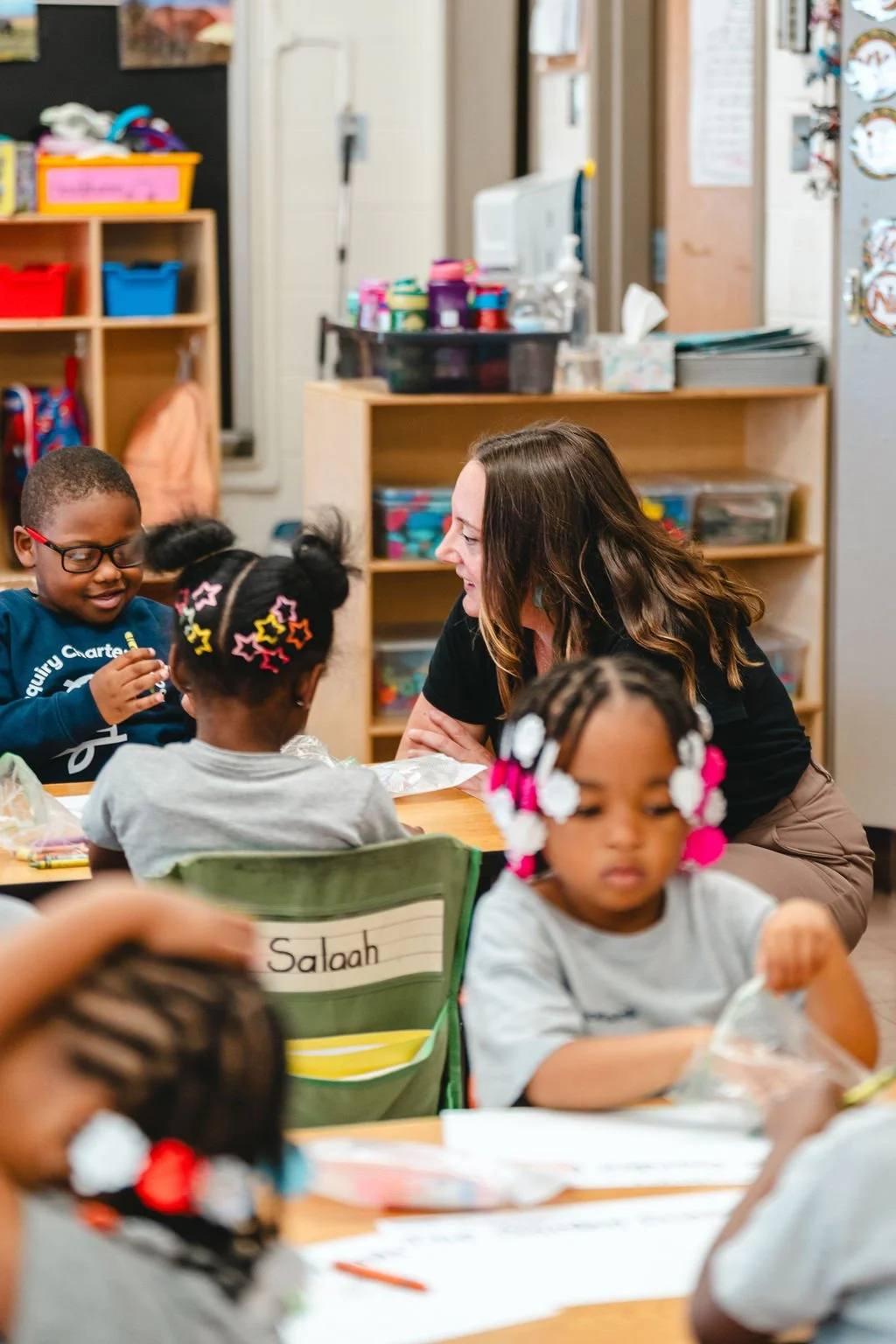Jounce Instructional Effectiveness Partnerships
We form long-term partnerships with schools and school networks to help instructional leaders drive transformational improvement in student learning. Jounce Acceleration Partners - former instructional leaders who have participated in thousands of hours of content knowledge and coaching training to build their own skill sets - support leaders with side-by-side coaching every week focused on content-specific coaching practices and instructional management.
Program
“Providing professional development” is not always the same thing as “increasing instructional effectiveness.” Coaching leaders is a means for improving student experience and student learning, never an end in itself. Our partnerships change leadership practices in a way that leads directly to more effective teaching and a meaningful change in student success. Last year, our Instructional Effectiveness Partnerships helped our partner schools drive more than 10 percentage points of proficiency growth in the grades and content areas we supported at our biggest partners in each geography (Philadelphia/Camden; Washington, DC; Wilmington, DE; Columbus, OH).
Looking forward, we aim to help instructional leaders drive 8 to 10 point increases in proficiency every year for 3+ years at our partner schools, so that almost all students are proficient in math and ELA. We know that proficiency should be a floor and not the ceiling, but we also believe that consistent increases of this magnitude are an indicator that many students are developing a deep understanding of conceptual math and the ability to understand and analyze complex ideas in texts.
We help instructional leaders and leadership teams drive outcomes through strong coaching practices, deep knowledge of content-specific pedagogy, and a systematic approach to instructional management.
Effective Coaching
We help leaders adopt teacher coaching and professional development methods that are efficient in changing teacher practice and adaptive to teachers’ strengths and needs. This usually means:
Much more practice and lesson rehearsal in coaching and intellectual preparation meetings
Much more modeling, real-time coaching, and co-teaching in classrooms
An expanded definition of coaching touchpoints so that there are many interactions, large and small, every day to help teachers learn and grow
Content-Specific Pedagogical Knowledge
“Good teaching is good teaching” can only take a school so far. We do support leaders in coaching teachers on content-agnostic moves that are good practice across the board: giving clear directions, designing efficient routines, building strong relationships, collecting real-time data, and asking questions in ways that engage all students in thinking. But teachers can do all these things - and implement high quality instructional materials with reasonable fidelity - and still struggle to make meaningful learning gains happen. We build leaders’ knowledge of content-specific, science-based frameworks for good teaching in early literacy, reading/language comprehension, math, writing, and other subject areas.
Systematic Instructional Management
When leaders have deep content knowledge and can coach in ways that invest teachers while rapidly changing teacher practice, all the pieces are in place for transformative student learning. But leaders still need to make sure all of the coaching inputs happen, changes in teacher practice follow, and the expected student learning occurs. In a complex organization, this requires systems for follow up, monitoring, support, and data-based course adjustments. We support principals and network-level leaders in running systems that keep the focus on improved student learning.
Frameworks for content-specific school leadership
Working backward from student learning outcomes, we’ve defined a set of teacher practices and instructional leadership competencies to drive transformative results. These tools are - and will always be - a work in progress as we learn from researchers, our partner schools, our colleagues, and cycles of application and data collection. Feedback, questions, and insights are welcome!


